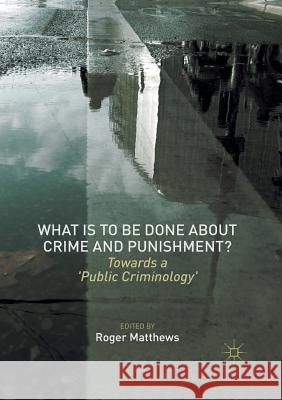What Is to Be Done about Crime and Punishment?: Towards a 'Public Criminology' » książka
topmenu
What Is to Be Done about Crime and Punishment?: Towards a 'Public Criminology'
ISBN-13: 9781349848058 / Angielski / Miękka / 2017 / 324 str.
What Is to Be Done about Crime and Punishment?: Towards a 'Public Criminology'
ISBN-13: 9781349848058 / Angielski / Miękka / 2017 / 324 str.
cena 204,13 zł
(netto: 194,41 VAT: 5%)
Najniższa cena z 30 dni: 202,39 zł
(netto: 194,41 VAT: 5%)
Najniższa cena z 30 dni: 202,39 zł
Termin realizacji zamówienia:
ok. 10-14 dni roboczych
Bez gwarancji dostawy przed świętami
ok. 10-14 dni roboczych
Bez gwarancji dostawy przed świętami
Darmowa dostawa!
This book responds to the claim that criminology is becoming socially and politically irrelevant despite its exponential expansion as an academic sub-discipline.











